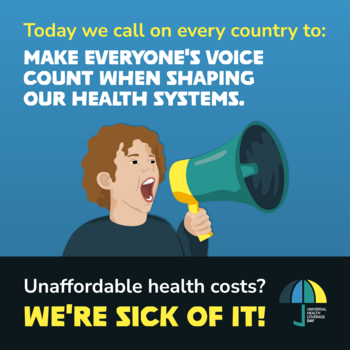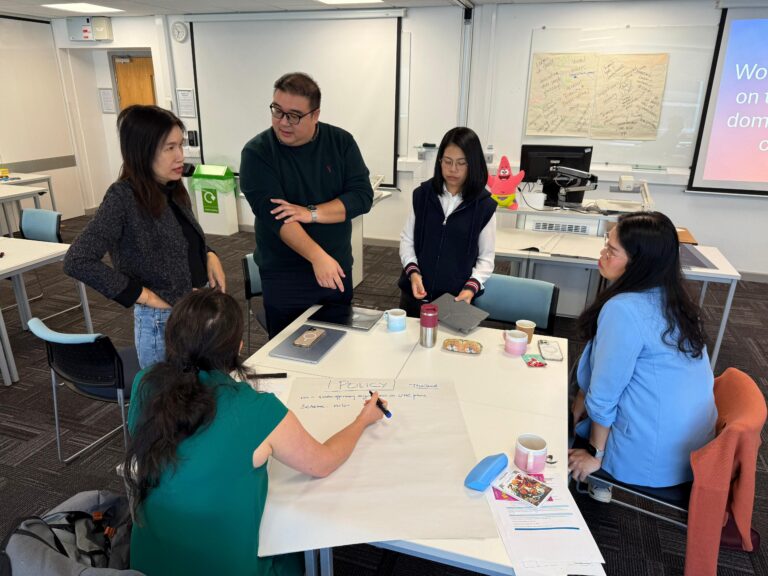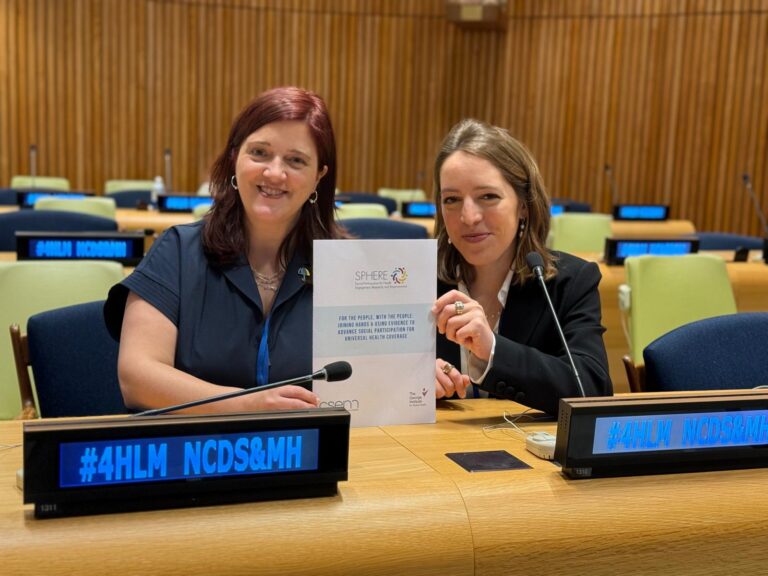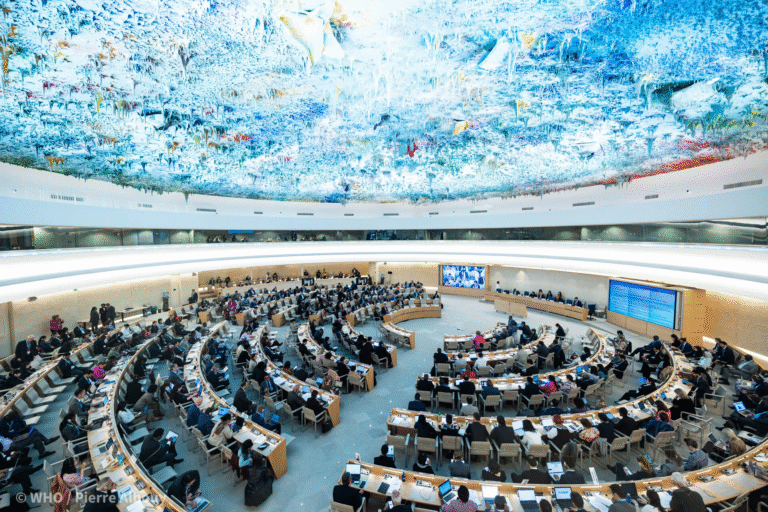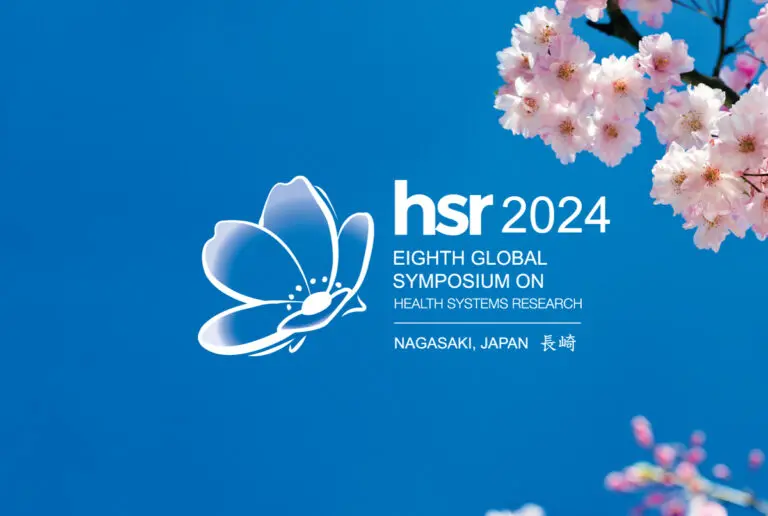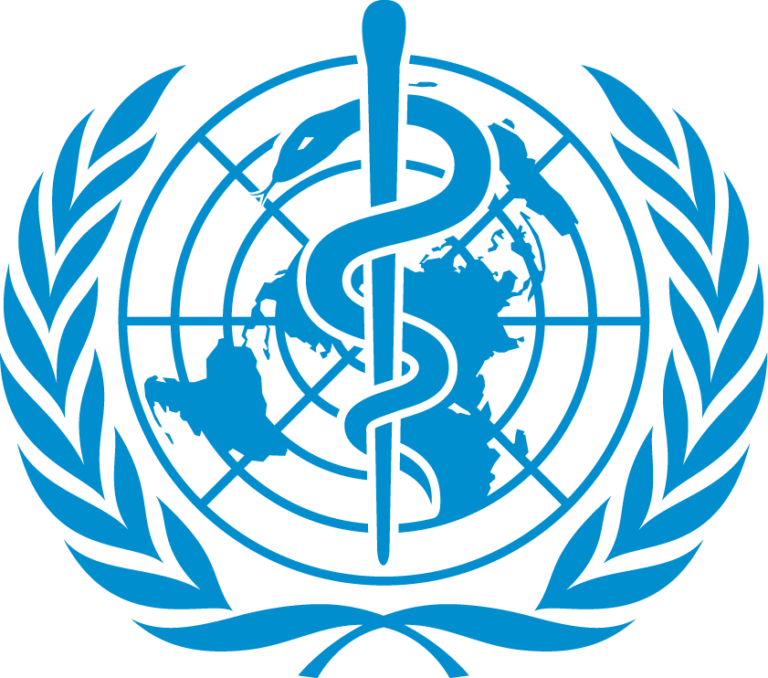The 80th session of the United Nations General Assembly (UNGA 80) took place in September 2025, and it marked a pivotal moment for global health, particularly non-communicable diseases (NCDs) and social participation for health. To kick off the high-level General Debate, The World Health Organization (WHO), and The Republic of Slovenia – with sponsors including Brazil, France, Japan, Iceland, Kenya, Malta, Spain, Thailand, Tunisia, UHC2030, and the Civil Society Engagement Mechanism of UHC2030 (CSEM) co-hosted a side event titled, “Social Participation and Health Equity as Drivers of Resilient Societies.”
This event featured several high-level speakers including Presidents Natasha Pirc Musar and William Samoei Ruto of Slovenia and Kenya, former Prime Minster of Iceland, Katrin Jakobsdottier and the WHO Regional Director for Europe, Dr. Hans Henri P. Kluge. Other speakers included Monica Garcia Gomes, Minister of Health, Spain; Fernanda Magano, President of the Conselho Nacional de Saude, Brazil; Benilda Batzin, Executive Director, Centro de Estudios para la Equidad y Gobernanza de los Sistemas de Salud; and Tipicha Posayanonda, Director Secretary General of the National Health Commission, Thailand to discuss the 77th World Health Assembly resolution, Social participation for universal health coverage, health and well-being. The conversation highlighted how nations are translating their commitments to enhance social participation for health into action, emphasized the urgent need for meaningful partnerships with communities, and underscored the role of evidence and research in strengthening social participation for health efforts.
At the High-level Meeting (HLM) on NCDs and Mental Health on September 25, 2025, several Member States reiterated their commitment to social participation. In particular, the inclusion of clear, measurable targets in the political declaration was widely celebrated. These targets represent a major step forward in assessing government action on addressing the burden of NCDs and enable civil society and communities to effectively hold governments accountable to their commitments. Although the declaration’s adoption was blocked by the United States, citing objections to language related to gender and reproductive rights, the final draft of the political declaration is seen as a triumph from the health systems strengthening and UHC perspective.
To conclude the high-level week, the Group of Friends of UHC and Global Health hosted a side event titled, “Strategic investments for resilient health systems: strengthening health systems and advancing universal health coverage in a changing world.” The event features high-level speakers including Ministers of Health from Japan, Thailand, Georgia, Antigua and Barbuda, Colombia, Kazakhstan, Gambia and the WHO Director General, Dr Tedros Adhanom Ghebreyesus. CSEM Advisory Group member and Founding Director of Blue Circle Diabetes Foundation, Nupur Lalvani joined the panel and recommended the following actions for governments to maximize the impact of their health investments through a whole-of-society approach:
- Create robust and inclusive governance systems, supported by legislation, financing, and regulation to ensure government accountability and the effective implementation of the WHA resolution on social participation for UHC, health and well-being.
- Establish timely, participatory and inclusive spaces where all stakeholders, including civil society and communities can meaningfully engage, inform, and influence policymaking at all levels of the health system.
- Provide reliable and sustained financial resources to support advocacy and facilitate the participation of civil society and communities, particularly those from resource-constrained and marginalized communities, to drive local implementation.
In May 2025, the multistakeholder hearing, which informed the zero draft of the 2025 Political Declaration for the HLM on NCDs and Mental Health, successfully brought together a diverse range of voices, where stakeholder shared lived experiences and policy perspectives from the floor and on panels. Unfortunately, across the three sessions of the HLM on NCDs and Mental Health, civil society participation was limited, with minimal representation on the panels and few opportunities to speak from the floor. Ensuring meaningful engagement at every stage – from consultation to implementation – is essential for building resilient, equitable health systems, and we hope that as the implementation of the 2025 Political Declaration on NCDs and Mental Health and the WHA resolution on social participation for UHC, health and well-being will place health systems users and communities at the center.
The 2025 UHC Day campaign focuses on the lived experience and making on making everyone’s voice count when shaping health systems. Join the campaign today to call on government decision-makers to act urgently as unaffordable health costs are making our communities poorer and sicker!
